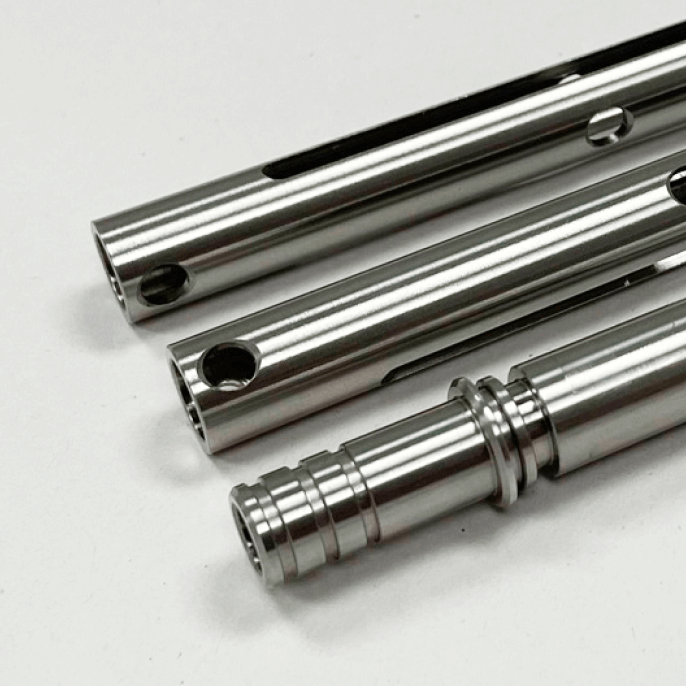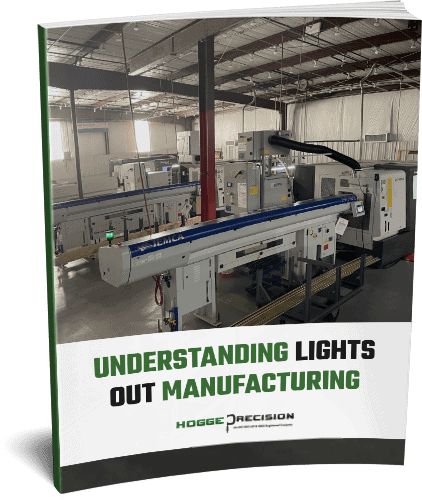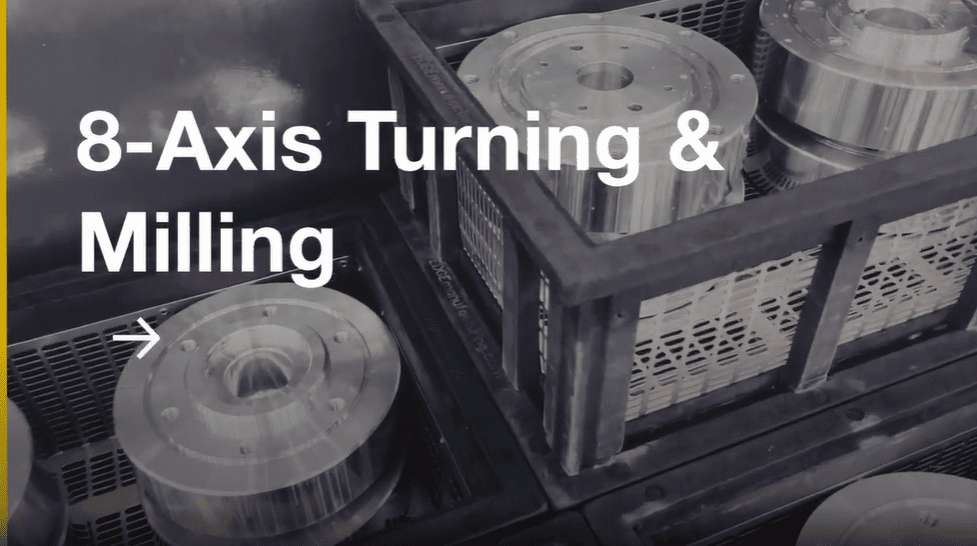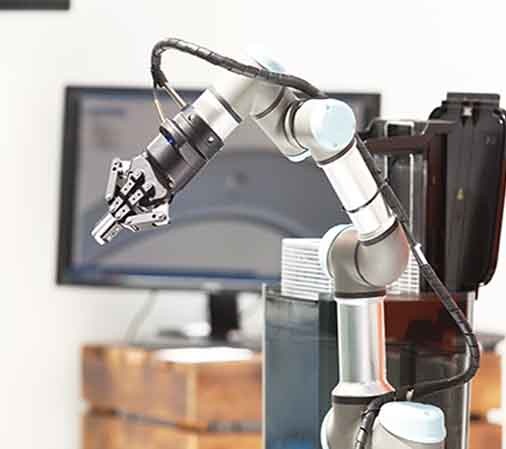
CNC Turning: Improving Speed & Quality While Reducing Costs
Table of Contents
Quick Summary:
CNC turning is a computer-controlled machining process that shapes raw materials into precise cylindrical components. This automated process offers superior precision, faster production rates, and lower labor costs compared to manual methods. Modern CNC turning machines can incorporate multiple techniques and tools, including mill-turning capabilities, to create complex parts with intricate details.
Computer numerical control (CNC) turning is a subtractive machining process that shapes bars of raw material into cylindrical components with precision. The technique controls equipment like lathes through computer-aided design (CAD) programs and digital instructions, applying a stationary tool to a rotating workpiece to remove material with rotational symmetry. CNC turning achieves tighter tolerances for a level of precision that isn’t possible through manual machining, all while increasing speed and throughput and decreasing labor costs.
CNC Turning Process
For CNC turning, the initial setup and programming stage involves prepping a lathe with the necessary tooling and placing raw material into the machine’s rotating chuck. An operator will program the machine by inputting the design specifications into the computer program and initiating production. The computer controls the movement of the cutting tools with a high degree of accuracy, removing material until the resulting part takes the desired shape.
However, turning operations can use multiple machining techniques and cutting tools to generate precision components with complex shapes and intricate detailing. For example, modern multi-axis CNC turning machines like dual-spindle twin-turret lathes are available with a milling component or live tooling. Unlike conventional turning, CNC mill-turning utilizes an end mill or similar style tool within a lathe capable of independent movement, making thread and cross-milling, grooving, slotting, tapping, and other milled features possible. Such equipment can also be paired with bar loaders or machine-tending robots for enhanced efficiency and productivity.
Despite the automated nature of CNC turning, it’s still important to incorporate continuous monitoring in manufacturing operations to maintain optimal product quality. Devices such as feedback systems and sensors can alert operators to product deviations so that they can address these quality issues quickly. Such quality control is critical to achieving maximum accuracy in end products and reducing waste.
How CNC Turning Improves Speed & Quality While Reducing Costs
What is CNC turning’s value from a business standpoint? The process reduces cycle times and accelerates production rates, even for more complex and intricate product designs. Compared to manual alternatives, CNC turning is faster and more accurate, with its capacity for automation minimizing the need for human labor for increased cost savings. Once in process, automated CNC turning operations are capable of lights-out manufacturing for greater throughput and revenue potential. CNC turning equipment also reduces material waste, allowing manufacturers to derive maximum value from available material resources.
By automating the turning process, manufacturers achieve greater part consistency and precision. CNC turning eliminates the risk of human error, reducing part variability and providing customers with repeatable, uniform production. Automated CNC turning offers the additional benefits of:
- Maximum production efficiency
- Stringent quality controls
- Scalable production compared to manual processing
- Faster turn times with pre-programmed CNC equipment
- Optimal versatility, with a wide range of material options and design capabilities
- Improved worker safety through reduced human-machine interaction
CNC Turning by Hogge Precision
Precision CNC turning is essential in fulfilling manufacturing needs across numerous industries, including military and defense, aerospace, energy, medical, and more. Manual processes are not only less precise and efficient but also less cost-effective. Automated CNC turning makes more complex designs possible, even while boosting speed and repeatable accuracy.
With a long-standing reputation for client-focused contract manufacturing, Hogge Precision Parts Co., Inc. is dedicated to optimizing quality and efficiency in our CNC turning services. Utilizing advanced equipment like our hybrid twin-turret, dual-spindle SC-100X2 machine and our 7- and 8-axis turning centers, we can achieve tolerances of ±0.0005 inches in our state-of-the-art facility for turned products ranging from valves and plumbing components to motion control devices. Our automated and lights-out operations follow our ISO 9001:2015-registered quality management system, and the Hogge Precision team uses CMM, optical comparators, quality planning software, ERP, and other methods to ensure 100% customer satisfaction.
In addition to CNC turning and milling, we also offer screw machining, Swiss machining, and Inventory Management programs to provide comprehensive service to our customers. Contact us to learn more about our capabilities.

Table of Contents
Additional Blogs

Ready to get started?
For more than 35 years, Hogge Precision has been a leading supplier and contract manufacturer of superior quality precision machined parts and assemblies for customers around the world. Thanks to our broad range of experience and state-of-the-art, ISO 9001:2015-certified facility, we deliver top-quality products and services with exceptional attentiveness and integrity. To learn more about our precision machining services, contact our team. We look forward to helping with your next project!

Or call us at: 843-332-3566













